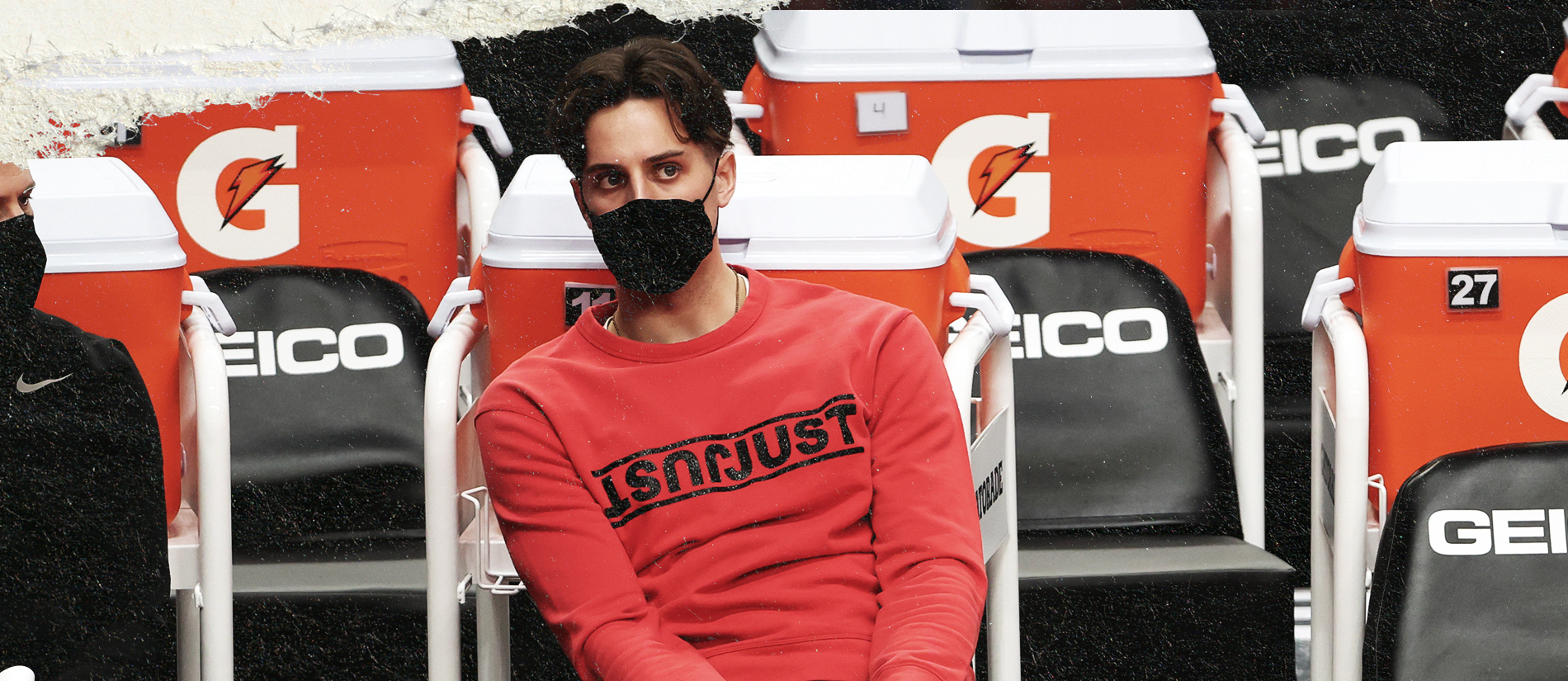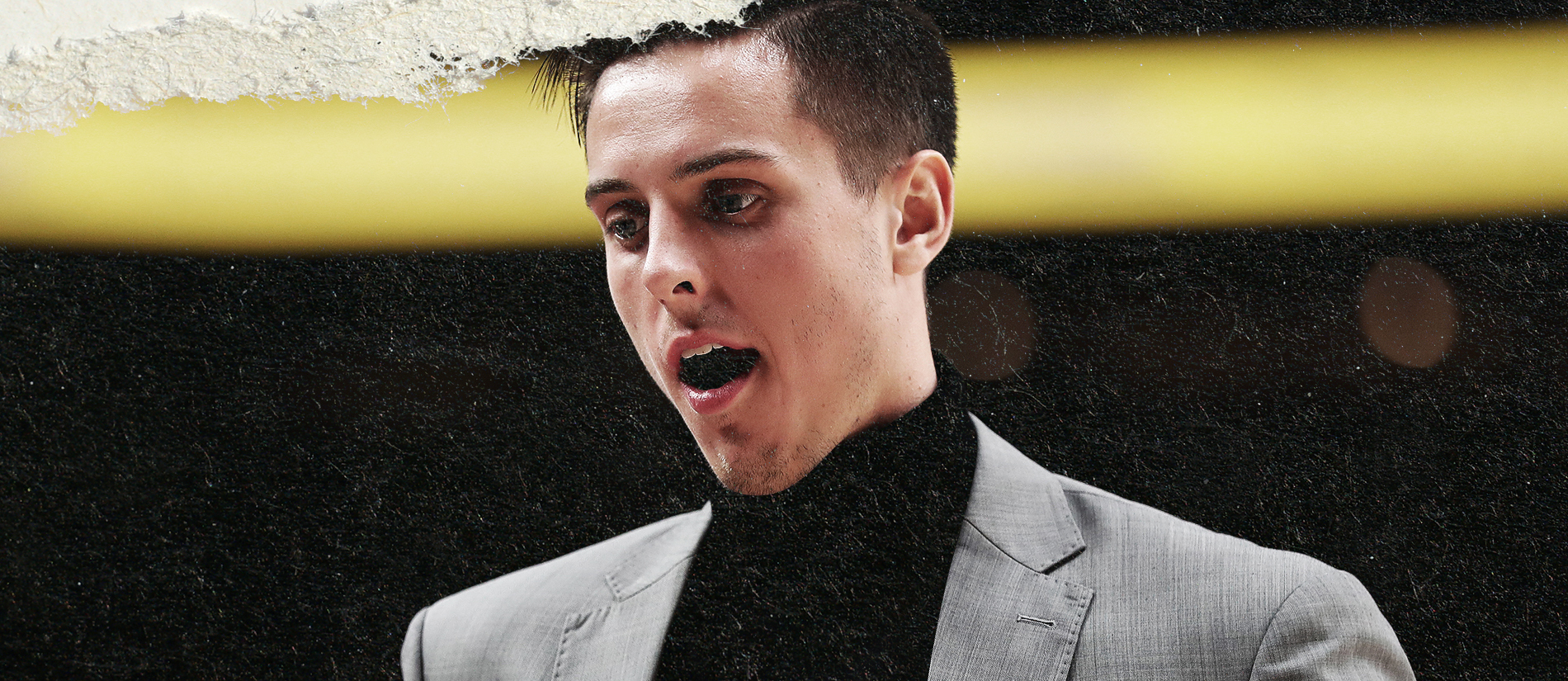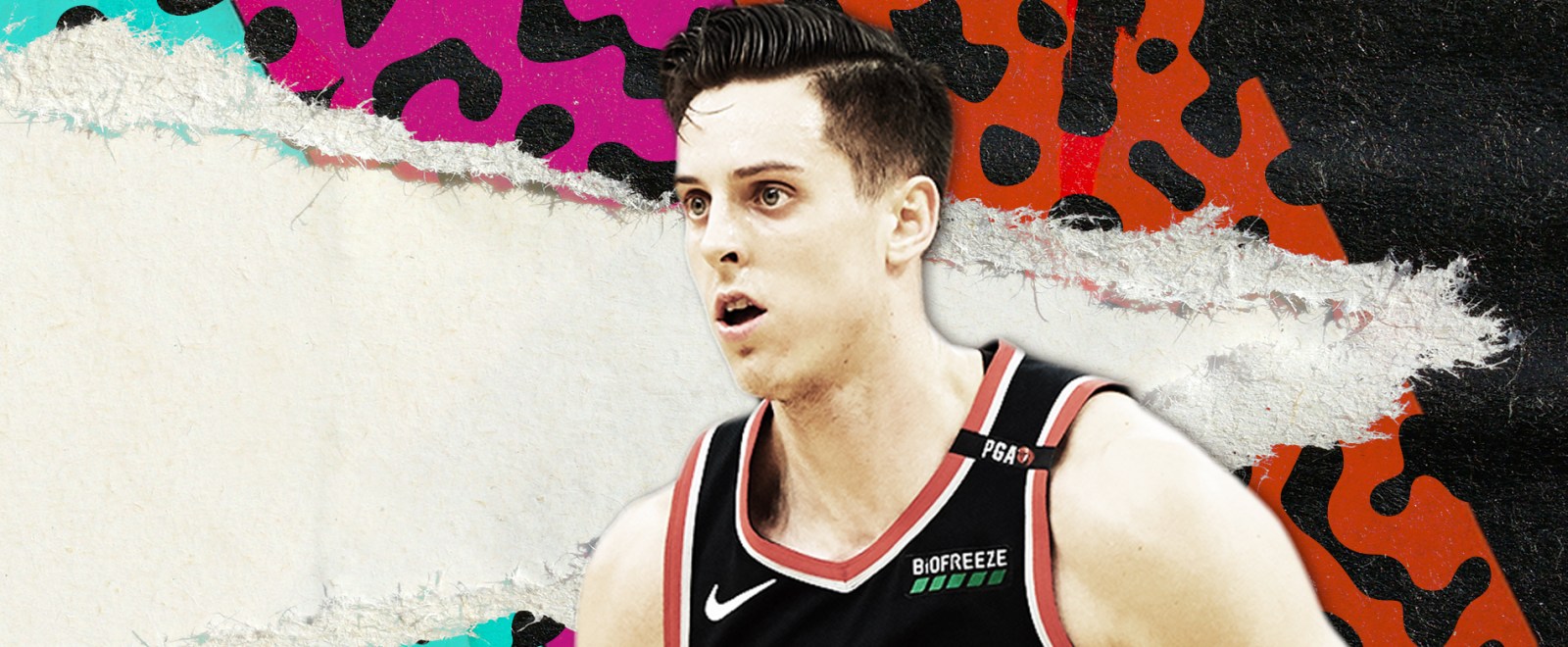The last two-plus years of Zach Collins’ life have been filled with surgeries, rehab, and basketball games that are consumed from the bench while wearing street clothes. Collins, then a member of the Portland Trail Blazers, hasn’t played in a game since Aug. 15, 2020 due to injuries to his ankle and foot, and before that, Collins spent months on the sideline with a labrum injury that required surgery, too. Now with the San Antonio Spurs, Dime sat down with Collins to learn about his road back to basketball. You can read Part 1 right here.
I’m interested in that “watching the game from a different perspective” thing you mentioned. What were some of the big things that you learned from that perspective, as a basketball player, as someone who loves the game, and someone who wanted, at some point, to take the stuff that you learned there and apply it to your own game?
I thought it would just be important not to just sit there and think about what you’re going to have for dinner after the game, and being there to clock in. I thought it’d be important to challenge myself to be more vocal as a leader, to ask questions. When you’re playing and you come back to the bench, and your coaches are telling you to do stuff, you don’t really see it from their perspective. And it was fun to hear what they tell them and be able to ask them, “Well, why did you say this,” or, “Oh, now I see why they’re always preaching that.” That was cool, and hopefully, a lot of that stuff stays with me when I come back. I’d like to think that watching all this basketball has made me learn the game a little bit more. You can only learn so much from not playing, but I think I took advantage of it.
The team announces on June 29, 2021 that you had to undergo a third surgery. What led up to that? What led to you making that decision and what all went into that?
The June announcement, when I found that out, that was even bigger of a blow than the December announcement. Because after the December surgery, that rehab was a full, six-month rehab and… it was just a very long rehab. It was a very slow rehab. I wasn’t weight-bearing for a while, I was in a cast at one point. It was a very … I wouldn’t say grueling rehab, it was just very long and very methodical — as it should be, we were trying to be conservative with it.
Just to find out that, after all that time, it still didn’t work, it sucked. It was bad. It was definitely more of an emotional hit than the second announcement of another surgery. So, yeah, it was tough.
It was summertime, and it was a couple weeks after the season ended. We’re still in the gym, we’re still working, and my ankle’s actually feeling really good. I’m going through basketball workouts, and it’s feeling good. And that was another thing too — the ankle felt good, but then we look at the picture, and there’s another fracture there. It’s frustrating, then you’re going through the stages of, like, blaming people. I started blaming the trainers around me, I started blaming the doctor I was working with, I was questioning whether or not I’ll ever even play again, because this damn thing won’t heal. And I was questioning whether or not I did everything I was supposed to in the rehab. Did I not ask enough questions? Did I not get enough sleep? Did I not eat right? Did I not focus enough?
It was tough. At the same time, I felt like I was letting, again, a lot of people down. I felt like I was letting friends and family around me who continue to believe in me and be positive for me so much, I felt like I was letting them down. So it all hit me at once. But the biggest thing was, I was just worried about this thing ever healing. And that was the biggest concern at the time.

You were talking a bit earlier about how you tried to have the sunshine and rainbows mentality, but it weighed on you. When you find out about this third surgery, this one that’s going to hold you out even longer, do you have to take time to convince yourself, again, “Sunshine and rainbows, I’m gonna persevere and push through this?” Or was it exponentially harder to double down on that?
It was hard, bro, because at the same time, I was a free agent that summer. So, you have to pitch to teams that you’re gonna have to sign somebody that you’re going to have to rehab and get healthy. And that was another thing I was worried about, regardless of me showing up and working hard, because at the end of the day, no matter what happens to me, I know I’m going to continue to show up and work and not run from the work. That’s never the hard part.
The contract thing was definitely a worry for me. And luckily, my agent, when I told him that stuff, he said, “Relax, you have nothing to worry about, blah, blah, blah.” But yeah, it was tough to flip that switch. We took some steps, we talked to more people this time, and we just were a little bit more aggressive in how we were going to handle it, who we were talking to, what questions we were asking, and making sure that we are going to turn into a positive. Again, once I flipped that switch of, yeah, it’s a shitty situation, but make the most of it, life could be worse, that was always my thing.
I was going to ask about what goes through your mind with the timing of it, because you were a free agent. But it sounds like … I don’t want to say you were easily convinced that it wasn’t going to be a huge concern or anything like that, but it does sound like the people around you were saying yes, again, this is a shitty situation, but even though you’re a free agent, you don’t have much to worry about it from that regard.
I think everybody was concerned. I think the only person that wasn’t concerned was my agent. He’s great, it’s Mark Bartelstein. I was definitely worried about it because I didn’t know how that worked, and I had heard stories about guys continuing to get hurt, especially as a free agent, and their contracts not being great. I was definitely worried about it, everybody else was worried about it, too, maybe not as much as me. Everybody around me was still positive — Zach, you’ll be fine, don’t worry about it, regardless of the deal, you’ll work your way back. They were all cool in that sense. But I think everybody kind of held their breath for a while, as far as what the deal was going to be, if I was going to sign with a team, or if anybody would even want to bet on me in that sense.
When it came down to it, I realized that I didn’t have to worry as much as I was. The body of work before that, I think, and being able to come from a place like Portland, I think teams appreciated that. It ended up being a really good situation, obviously, that came out of it, but at the time, I was definitely worried.
After spending all of his career with the Trail Blazers up until that point, Collins signed a three-year, $22 million contract with the San Antonio Spurs in free agency.

So if I may ask, the timing of the injury, and knowing that you would need a little bit of time, did any of this impact your decision to go to San Antonio? Or was it just, “That’s the best opportunity for me, all things considered”?
I think San Antonio was just the best opportunity for me. There were a couple options that we had talked about, but San Antonio just stood out amongst all of them. The money situation, it was good, I was pretty happy with it based on what had happened to me the past year or two.
But again, it’s San Antonio, it’s the Spurs, the culture that’s here, you don’t have to be a diehard basketball fan to know that San Antonio is known for winning. To be able to start my career in places like Portland, and then go to San Antonio, I couldn’t ask for much better than that. It was pretty easy for me at that point.
My final question before we start looking forward to getting back to playing: What’s it been like going through the rehab process in a new place? Have you had to change anything up being in San Antonio, or have the Spurs basically said, listen, Zach, you know your body, you know what you’ve been through, keep doing what you’ve been doing?
We tried to not come at it differently, but the Spurs definitely had a plan. I don’t know what the hell I’m doing with the rehab, I show up and I learn from them, and they tell me what to do based on data and science and all that, and I follow through. I would definitely give my two cents here and there about, we did this before, we tried this, maybe we don’t do that this time because it went bad, or what is your opinion on this, this seemed to help me a lot last time, and this seemed to not help me. And they were very collaborative. All the time, they told me this is a team effort. We’re not just gonna come in here and tell you what to do every day. Give us your feedback, how you’re feeling.
The one thing that really helped me with San Antonio — and not that Portland didn’t do this — but coming into a team where, their objective is to rehab you and get you out there playing, I didn’t know if they would rush me at all, I didn’t know if they would give me a lot of pressure. But from day one, even before rehab started with them, I never felt any type of pressure. I never felt like they had a hidden agenda as far as when they wanted me back and they weren’t telling me. They, from day one, they said, we’re not in a rush. We want you to be great for the rest of your career, not great in the next four months. It was very, very genuine in that sense. So I was very happy with that.







